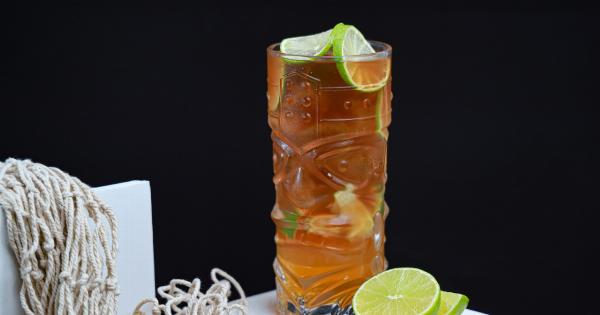Alcohol consumption is a prevalent behavior in many societies, but excessive drinking can lead to various health and social problems. As a result, individuals often seek ways to limit their alcohol intake and regain control over their lives.
This article explores different techniques and tactics that can help individuals moderate or cut down on their alcohol consumption.
1. Set Clear Goals
One of the initial steps in limiting alcohol consumption is to set clear and specific goals. Determine the amount of alcohol you want to consume in a week or establish days of the week when you will abstain from drinking.
By setting goals, you create a framework that guides your decisions and helps you stay accountable.
2. Create a Plan
Once you have set your goals, it’s crucial to create a plan that outlines how you will achieve them. For instance, if your goal is to limit drinking to weekends only, plan alternative activities during the week to keep yourself occupied.
This plan will help you stick to your goals and avoid impulsive decisions.
3. Track Your Consumption
Keeping track of your alcohol consumption is a useful strategy to understand your habits and identify triggers. Maintain a journal or use a mobile app to record the number of drinks, days, and situations that involve alcohol.
This data will give you insights into your drinking patterns and enable you to make more informed decisions.
4. Control Your Environment
An effective tactic in limiting alcohol consumption is to control your environment. Avoid places or social situations that encourage heavy drinking. Instead, seek out events or activities that are alcohol-free or have less emphasis on alcohol consumption.
Additionally, surround yourself with supportive friends who respect your decision to limit or abstain from drinking.
5. Practice Mindfulness
Mindfulness is a powerful technique that can help you become more aware of your thoughts, feelings, and behaviors regarding alcohol.
By practicing mindfulness, you can identify patterns of automatic or impulsive drinking and develop strategies to interrupt these patterns. Incorporate mindfulness practices such as meditation or deep breathing exercises into your daily routine to promote self-awareness and self-control.
6. Find Healthy Alternatives
When limiting alcohol consumption, finding healthy alternatives can be beneficial. Replace alcoholic beverages with mocktails, infused water, or non-alcoholic options.
Experiment with different flavors and ingredients to create exciting and refreshing alternatives that satisfy your craving for a drink without the negative effects of alcohol.
7. Seek Support
Seeking support from friends, family, or professionals can significantly aid in your journey to limit alcohol consumption. Surround yourself with individuals who understand and respect your goals.
Consider joining support groups or engaging in therapy to gain additional guidance and accountability. Remember, you don’t have to face this challenge alone.
8. Practice Stress Management
Many individuals turn to alcohol as a means of coping with stress. Developing healthy stress management techniques can reduce your reliance on alcohol.
Engage in regular exercise, practice relaxation techniques such as yoga or tai chi, or find creative outlets such as painting or writing to manage stress effectively. By finding alternative outlets for stress, you can curb the desire to turn to alcohol for relief.
9. Celebrate Milestones
When you successfully achieve a milestone in limiting alcohol consumption, it’s important to celebrate your accomplishment. Rewarding yourself for progress made can boost motivation and reinforce positive behaviors.
However, it’s crucial to choose non-alcoholic rewards to avoid contradicting your goal of limiting alcohol consumption.
10. Stay Persistent and Be Kind to Yourself
Limiting alcohol consumption is a continuous process that may involve setbacks. Be persistent and remind yourself why you decided to make this change. If you slip up, be kind to yourself and avoid self-blame.
Use the setback as an opportunity to learn and make adjustments to your strategy. Remember, progress takes time, and every step towards limiting alcohol consumption is a step towards a healthier and happier life.































